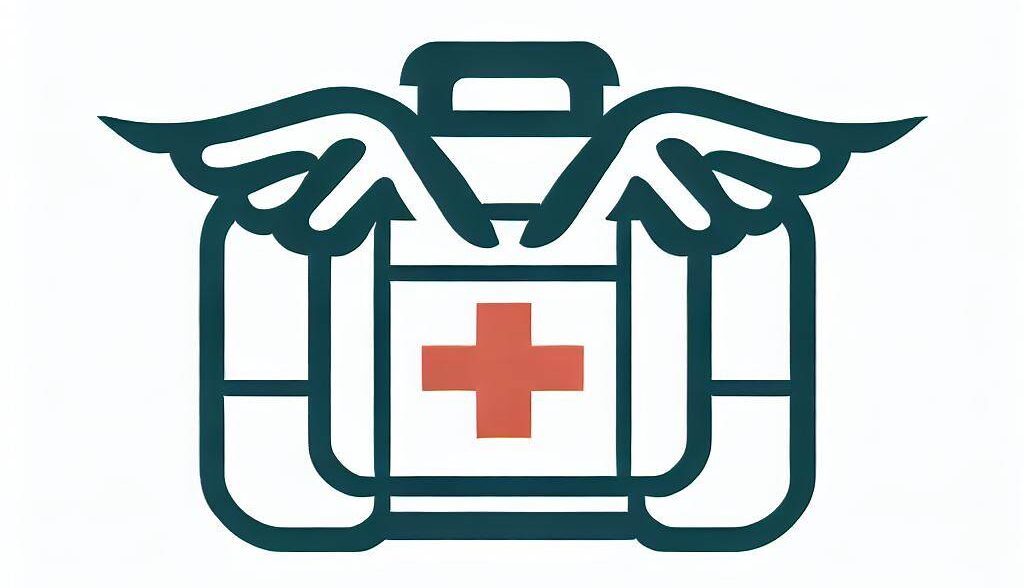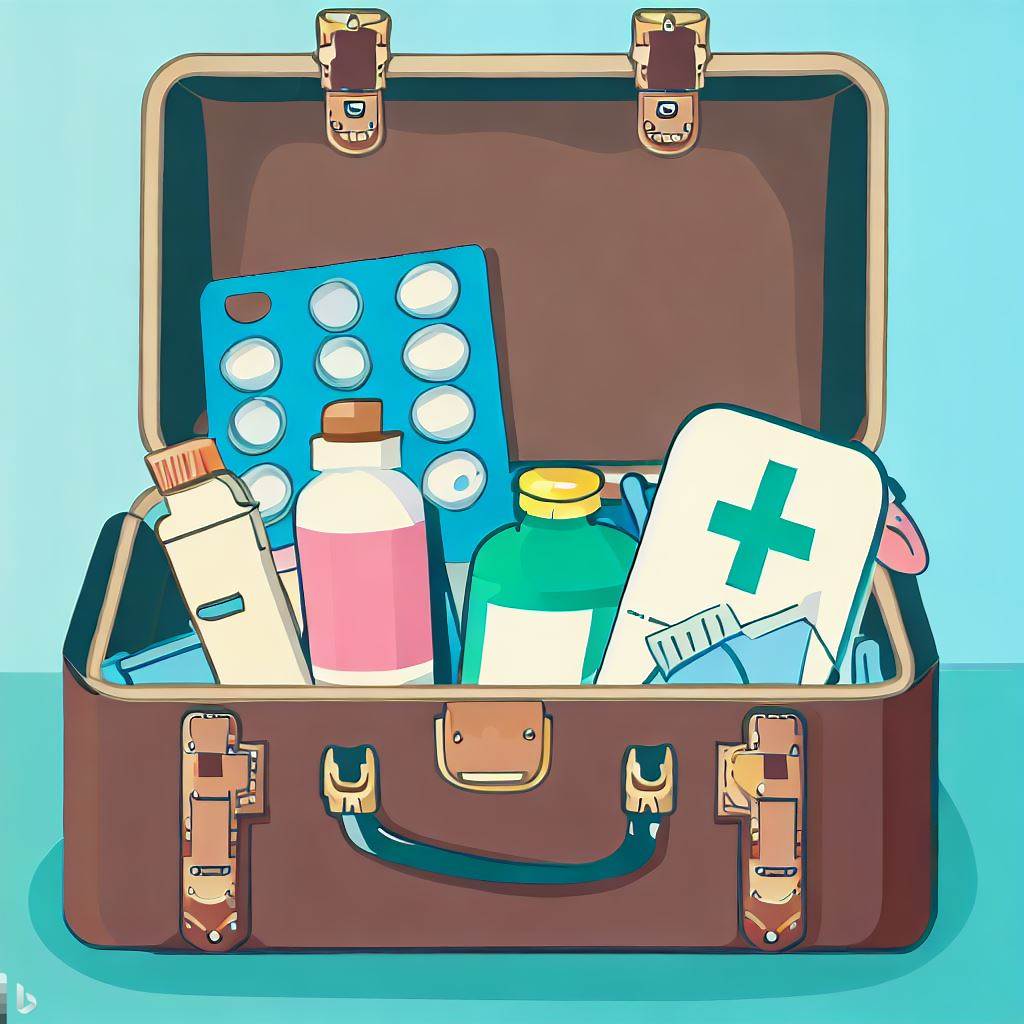Introduction to Travel Medicine
Let’s dive into the field of travel medicine, a realm that’s often underestimated in its significance. So what is travel medicine? Essentially, it’s a field of medicine that concentrates on the prevention and management of health issues associated with international travel.
Its importance cannot be understated as it helps travelers stay healthy and safe during their trips, enabling them to fully enjoy their adventures abroad.
Travel medicine is all about being proactive rather than reactive, focusing on disease prevention, rather than treatment. This discipline emphasizes educating travelers about the potential health risks they may encounter, providing them with the necessary vaccinations or medications, and preparing them to handle various health situations that may arise during their travels.
Travel Related Risks
Now, you might be wondering about the types of health risks and diseases travelers might face abroad.
These can vary widely depending on several factors such as the destination, duration of travel, and activities planned during the trip. The risks can range from mild inconveniences like jet lag and travel-induced stress to more serious issues like medical emergencies.
Infectious diseases are a primary concern in travel medicine. Depending on the region, travelers may be exposed to diseases such as malaria, dengue fever, typhoid, hepatitis, or yellow fever.
Other potential risks include foodborne and waterborne diseases which could lead to traveler’s diarrhea or other gastrointestinal problems. In certain destinations, altitude sickness or extreme weather conditions could also pose health risks.
It’s important to note that the risk of encountering these health concerns doesn’t imply that travel should be avoided. On the contrary, understanding these risks allows for better preparation and highlights the importance of travel medicine.
Why Is Travel Medicine Important?
The excitement of exploring new places should never overshadow the importance of your well-being. Sickness acquired during travel can lead to unforeseen consequences, ranging from mild discomfort to severe illnesses.
When you travel, you potentially expose yourself to different environments, climates, and exotic diseases that your body may not be accustomed to.
Traveling without being educated about health risks before traveling to a country is like navigating through a maze blindfolded—you don’t know what dangers lurk around the corner.
The risk increases if you have pre-existing conditions, as changing climates or environments could exacerbate these health issues. Therefore, it’s vital to get a health checkup and take necessary precautions based on your medical history before your travel to another country.
Real-Life Consequences of Neglecting Travel Health Preparations
There are numerous examples of travelers who faced significant health issues due to their lack of proper medical preparations.
A classic example involves tourists visiting malarious regions without taking malaria prophylaxis—a preventive treatment for malaria. Many of these travelers have unfortunately contracted the disease, turning their dream vacation into a nightmare.
In another instance, a group of hikers decided to trek the Himalayan trails without taking altitude sickness into account. As they ascended, some members of the group started showing signs of Acute Mountain Sickness (AMS), a potentially fatal ailment if not treated promptly. Their lack of prior health assessment and preparation turned their adventure into a rescue mission.
These real-life stories underscore the importance of thorough health checks and preparations before traveling. They serve as reminders of the potential health risks that could befall anyone, even seasoned travelers. Thus, it’s crucial to prioritize your health before your trip, ensuring a memorable and safe travel experience.
Role of Travel Medicine Clinics
This is where travel medicine clinics come into the picture. Travel Medicine Practitioners can be either a physician, advanced practice providers, or nurses.
They are trained Travel Medicine Specialists who are equipped with the latest information on global health risks, travel vaccinations, and other travel-related health information.
They offer comprehensive travel counseling that includes travel consultations, vaccinations, and preventive measures tailored to your specific needs.
Travel medicine clinics also provide education on self-care during travel, including advice on how to prevent illness, food and water safety, insect bite prevention, altitude sickness, sun protection, and how to treat travelers’ diarrhea.
Furthermore, they can help you plan for managing any existing health conditions while you’re away from home. This makes them an invaluable resource for anyone planning a trip abroad, especially for those going to high-risk areas or with complex medical histories.
In essence, travel medicine isn’t just about getting the right immunizations. It’s about having a thorough understanding of your personal health needs in relation to your travel itinerary and making necessary preparations to protect your health. Whether you’re a seasoned globetrotter or a first-time traveler, a personalized approach to understanding the current travel medical recommendations can help ensure that your journey is a safe and protected one.
Travel Vaccines Impacts International Health
Embarking on a journey abroad is exhilarating, but it’s crucial to prioritize your health during such adventures.
Travel related illnesses can be prevented with vaccines. These are immunizations that protect you from diseases that may not be common in your home country but are prevalent in the areas you intend to visit.
Travel vaccines help mitigate disease transmission. They not only keep you healthy and safe during your travels, but they also play a significant part in global health security.
By getting vaccinated, you’re reducing the likelihood of carrying infections back to your home country. Therefore, these vaccines are a critical tool in preventing the spread of infectious diseases worldwide.
Common Travel Vaccines and the Diseases They Prevent
There is a wide range of travel vaccines available for various diseases. The particular immunizations you’ll need depend on your travel destination, the duration of your stay, and your overall health condition. Here’s a brief overview of some common travel vaccines:
- Hepatitis A and B Vaccines: These vaccines protect against Hepatitis A and B, liver diseases that can cause fever, jaundice, and in severe cases, liver cancer or cirrhosis.
- Yellow Fever Vaccine: Predominantly required if you’re visiting certain parts of Africa and South America, this vaccine protects against yellow fever, a potentially deadly disease transmitted through mosquito bites.
- Typhoid Vaccine: This vaccine is recommended for travelers visiting regions where contaminated food can cause Typhoid Fever, a serious bacterial infection caused by poor sanitation.
- Cholera Vaccine: Cholera is a bacteria found in contaminated food and water sources due to poor sanitation. The vaccine is given orally.
- Rabies Vaccine: A bite from infected animals can cause rabies. The rabies vaccine is recommended to any international traveler who may be in close contact with animals or will be traveling to a location with limited rabies treatment resources.
Bear in mind that this is just a short list of available travel vaccines. There are many more vaccines for other diseases like Japanese Encephalitis, Meningitis, and Polio. Always consult your healthcare provider or a travel medicine clinic to know which vaccines are recommended or mandatory for your travel destination.
To conclude, travel vaccines are an indispensable aspect of travel safety. They serve as your shield against diseases that can turn your dream vacation into a nightmare. So, ensure that you have all the recommended vaccinations before you pack your bags for your next adventure!
Other Aspects of Travel Health
While vaccines are crucial for travel health, they’re not the only consideration. Let’s explore other non-vaccine related aspects that are equally essential for maintaining good health while traveling, such as food safety, sun protection, and insect bite prevention.
While vaccines are important to nonimmune travelers, they’re not the only thing travel medicine specialists may recommend. You may be encouraged to bring items or medications that can protect you from certain bacterial infections, mosquito borne diseases, or altitude sickness.
Food Safety
One of the joys of traveling is exploring new cuisines. However, this can sometimes lead to traveler’s diarrhea or worse. To avoid these issues, be cautious about where and what you eat. Avoid eating undercooked or raw food, particularly seafood and meat. Be wary of street food, unless it’s freshly cooked and served hot. Also, drink bottled water and avoid ice cubes, which may have been made from contaminated water.
Sun Protection
Depending on your destination, you may be exposed to stronger sunlight than you’re used to. Prolonged exposure to the sun’s ultraviolet (UV) rays can cause sunburn, heat stroke, and increase your risk of skin cancer. So, apply a high-factor sunscreen generously and frequently, especially between 10 a.m. and 4 p.m when UV rays are strongest. Wearing sunglasses, a hat, and light, long-sleeved clothing can also provide additional protection.
Insect Bite Prevention
In many parts of the world, insects transmit diseases like malaria, dengue fever, and Zika virus. Protect yourself by using an insect repellent containing at least 30% DEET, wearing light-colored clothing that covers your skin, and sleeping under a mosquito net if necessary. Where possible, avoid areas with stagnant water, where mosquitoes tend to breed.
Maintaining Physical and Mental Health
Beyond these precautions, it’s important to look after your overall physical and mental health. Regular exercise, adequate sleep, and a balanced diet can boost your immune system and help you stay healthy. Remember, traveling can be stressful, so try to incorporate relaxation techniques like deep breathing or meditation. And don’t forget to take time to enjoy the journey!
Understanding and implementing these aspects of travel health can significantly reduce the risk of illness during your trip. So, when planning your next adventure, remember that travel health is more than just vaccines and prescription medicines – it’s a holistic approach to staying well while exploring the world.
Personalized Travel Medicine: Adapting To Your Needs
Just as every individual is unique, so too should be their approach to travel medicine. The one-size-fits-all approach is not the best way to ensure a safe and healthy trip abroad. This is because various factors such as your health history, destination, and the nature of your trip can significantly influence the types of health risks you may face.
Personal Health History
The first step in personalizing your travel medicine is understanding your health history.
Careful evaluation of your past medical history including any chronic conditions, allergies, and medications should be considered prior to trips abroad.
Travel health advice should be tailored to the individual. A travel medicine specialist identifies specific health dangers based on your destination country and can recommend certain vaccines to nonimmunized travelers or medications to prevent disease transmission.
Final Destinations and Epidemic Areas
Your destination plays a crucial role in determining the specific health risks you might encounter. Some countries have endemic diseases not present elsewhere, such as yellow fever in parts of Africa and South America, or Japanese encephalitis in rural areas of Asia. Therefore, the geographical location, as well as the time of year you’re traveling, should also factor into your health preparations.
Lastly, the nature of your trip is another key element in personalizing your travel medicine. If you’re planning an adventurous trip that involves trekking through jungles or staying in remote areas, your risk of exposure to certain diseases, like malaria or dengue fever, increases. Conversely, if you’re going to be mostly in urban environments with modern amenities, your health needs might be considerably different.
Practical Steps to Ensure Your Health Abroad
Keeping healthy while traveling may seem like a daunting task, especially with the numerous health risks that can be encountered. However, by following some practical steps, you can ensure your health and safety while abroad. This section provides a step-by-step guide to help you prepare for your trip health-wise.
Step 1: Schedule a Travel Medicine Consultation
Begin your travel preparation by scheduling an appointment to see a travel medical clinic. A travel medicine center will help identify any potential health risks before your trip. It’s advisable to do this at least six weeks before you depart, so you have ample time to address any health issues that may arise.
Step 2: Get Vaccinated
Depending on your destination, you might need specific vaccinations to protect against certain diseases prevalent in that region. Consult with a healthcare provider or visit a travel medicine clinic to get advice on the necessary vaccines. Remember, some vaccines require multiple doses spread out over several weeks, so plan accordingly.
Step 3: Secure Travel Insurance
Travel insurance is not just about protecting your luggage or flights. It should also cover any emergency medical situations that might occur during your trip. Make sure your policy includes hospitalization, evacuation, and repatriation coverage.
Step 4: Pack a Travel Health Kit
A well-stocked travel health kit is essential. This should include any prescription medications you take regularly, a supply of over-the-counter medicines for common ailments like diarrhea or fever, first-aid supplies, and preventive items like hand sanitizer and insect repellent. Don’t forget to carry copies of your prescriptions and a doctor’s note for any controlled substances to avoid issues at customs.
Step 5: Stay Updated on Health Advisories
Health situations in your destination can change rapidly. Stay updated on travel advisories and health information from reliable sources like the Centers for Disease Control and Prevention (CDC) or the World Health Organization (WHO).
In emphasizing these steps, it’s important to remember that health is not a one-size-fits-all concept – what works for one traveler might not work for another. Therefore, personalizing these steps based on your health history, destination, and nature of your trip is vital. Always consult the travel medicine specialist or your healthcare provider for advice tailored to your specific needs.
Conclusion: The Role of Preparedness in Safe Travel
As we’ve explored throughout this blog post, travel medicine plays a pivotal role in ensuring safe and healthy travel. It’s crucial to understand that traveling exposes us to various health risks, from infectious diseases to food and water safety issues. The importance of travel medicine lies in its preventive nature, aiming to safeguard your health by preparing us for potential health hazards before you embark on your journey.
Vaccines are an essential component of travel medicine. They provide protection against many diseases that are prevalent in different parts of the world. However, it’s vital to remember that travel health encompasses more than just vaccinations. It also includes aspects like sun protection, insect bite prevention, and ensuring mental well-being while traveling. All these elements work together to create a comprehensive health plan that allows you to enjoy your travels without worrying about potential health complications.
Moreover, travel medicine is not a one-size-fits-all solution. It is personalized, taking into consideration your health history, destination, trip nature, and other personal factors. This individualized approach ensures that you get the most effective health protection tailored to your specific needs.
Practically speaking, preparing for your health before a trip involves consulting with healthcare professionals or travel medicine clinics, getting necessary immunizations, conducting regular health check-ups, confirming your insurance coverage, and carrying necessary medicines. By taking these steps, you can significantly reduce your risk of encountering health problems while abroad.
What You Should Do Now
With all the knowledge you’ve gained from this post, we urge you not to take your health lightly when planning your next adventure. Consult with a healthcare provider or a travel medicine clinic before your trip, and be sure to discuss your travel plans in detail. These professionals can provide you with valuable advice and services tailored to your specific needs. Proper preparation is the key to ensuring a safe and enjoyable journey, so make travel medicine a priority in your travel preparations.
Remember, the world is full of wonders waiting to be explored. But exploring shouldn’t come at the expense of your health. So, prepare, protect, and then proceed with your travel plans. Here’s to safe and healthy travels!







